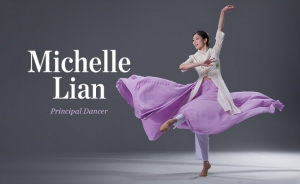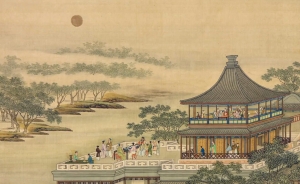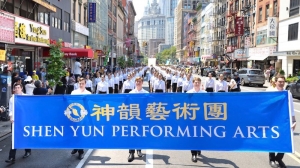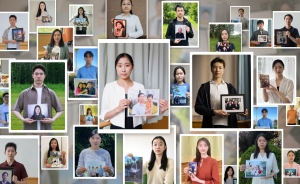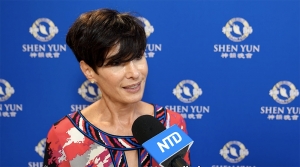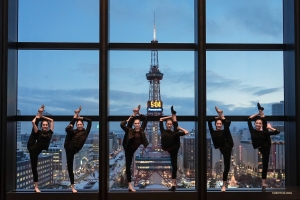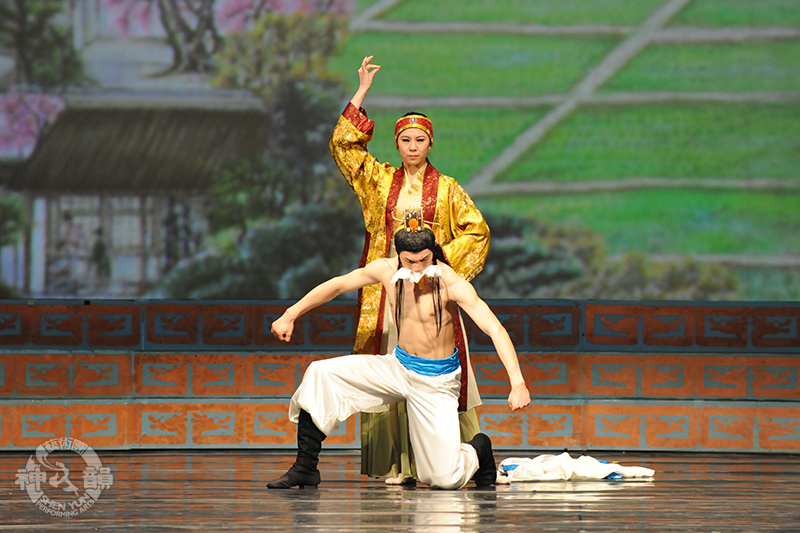
Memorable Mothers
From antiquity to today, Chinese culture has celebrated some remarkable mothers. Here, straight from Shen Yun shows, are a few worth knowing.
Yue Mu, Mom of the Loyal Yue Fei
The great general Yue Fei was born in the twelfth century, at the end of the Northern Song Dynasty. Just as he was coming of age, China was invaded from the north and in desperate need of capable warriors. Yue Fei faced a dilemma: to battle the invaders and defend his country, or to care for his elderly mother at home?
Seeing her son torn between these competing virtues of loyalty and filial piety, Yue Mu asked him to take off his shirt. She drew her sewing needle and tattooed four Chinese words on her son’s back: jing zhong bao guo—“Serve the country loyally.”
With her blessing, Yue Fei was now able to fulfill both his mother’s wish and his duty to the country. He went on to become one of China’s most celebrated generals and an enduring symbol of loyalty.
(The Loyalty of Yue Fei, from Shen Yun 2008.)
An anecdote to this story is that the name ‘yue mu’ also means mother-in-law. So if you talk about this story in Chinese, you could, theoretically, be misunderstood as talking about your mother-in-law tattooing your back.
More about the story of Yue Mu and Yue Fei
‘Chinese Amazon’ She Taijun
Also during the Song Dynasty, in her youth She Taijun was a female warrior who fought alongside her husband until she bore children. As the years went by, with her astute matchmaking her sons married other talented female warriors. The household grew, and She Taijun became the matriarch of the famous Yang Clan, a family celebrated for its courage and sacrifice.
When the Song Dynasty was again invaded, one after another the family’s male warriors went out to defend the country but were killed at war. Finally her grandson, the last of the male heroes, also dies in battle. Faced with invading troops bearing down on the homeland, She Taijun, now over 100 years old, encourages her grandson’s widow, Lady Mu Guiying, to take charge. Under Mu’s command, the Yang Clan’s female warriors defeat the invaders and save the dynasty.
(Lady Mu Guiying Commands the Troops, from Shen Yun 2012.)
More about this story and the Yang Clan

A Mother Trapped in a Mountain
Away from the battlefield and into the world of legends, there’s the goddess-mother known as San Sheng Mu. Having come down to earth and wandering in the forest, the goddess meets and marries a young scholar and bears a son. Watching from above, her brother is furious at this breach of heavenly decrees—how dare a goddess marry a mortal?! Enraged, he traps his sister inside a mountain.
All the mother can do is wait and suffer. Meanwhile, the young demigod son grows up and roams the mountains searching for his mother. Along the way, he encounters a Taoist master who teaches him special techniques and arms him with a magical axe. The boy then battles his uncle, defeats him, takes aim at the mountain with his axe and, with one blow, splits the mountain. His mother is freed and lovingly embraces her son.
(Splitting A Mountain to Rescue Mother, from Shen Yun 2010.)

A Contemporary Mother’s Story
Shen Yun’s 2011 dance No Regret refers not to a specific mother, but to a woman representative of countless mothers in China today. This is the mother whose family experiences unjust persecution, who may have lost her son to the brutality of the Communist state, and who needs to find courage and strength to go on.
In this dance, a mother and son are enjoying each other’s company on a beautiful day in China’s countryside. They sit down to read a book together. This book contains the teachings of the peaceful spiritual discipline Falun Dafa, whose practitioners are persecuted in China today. Sure enough, Communist Party thugs soon arrive on the scene, take the book and take her son’s life. But just at this moment of her heartbreak, a divine scene appears, reuniting her with her son one more time.
(No Regret, from Shen Yun 2011.)

The Philosopher Mencius’ Mother
Mencius, one of China’s greatest philosophers, lived in the forth century B.C. And today, well over 2,000 years later, his mother’s greatness is celebrated in a Chinese idiom: “Mencius’ mother moved three times.”
Soon after Mencius was born his father died, and his mother faced the challenges of raising the boy with very little money. In search of a good environment for her son, she moved three times. Their first home was near a cemetery, but when his mother noticed the young boy imitating funeral processions, she upped and moved them closer to the marketplace. But then she noticed him imitating the haggling voices of merchants, so she gathered their belongings and moved them near a school. In this third home, she noticed her son imitating the scholars in their study habits, and there she stayed.
This is one story that hasn’t yet appeared on Shen Yun’s stage, but might it be a candidate? Stay tuned, because each year, Shen Yun presents a set of all-new programs. Who knows what mothers we shall meet next season...
May 8, 2013


